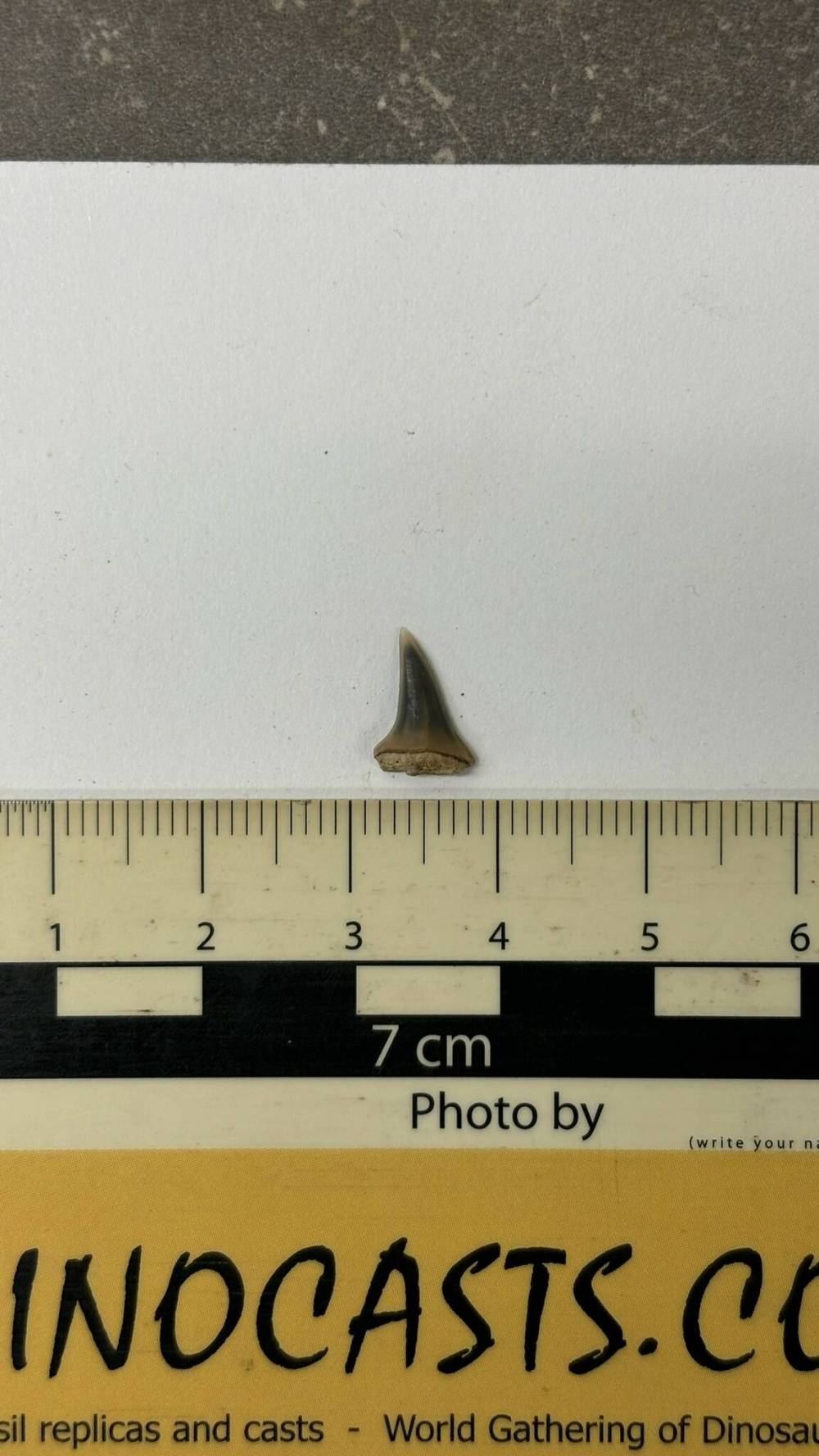Shark tooth find first for Manitoba
Advertisement
Read this article for free:
or
Already have an account? Log in here »
We need your support!
Local journalism needs your support!
As we navigate through unprecedented times, our journalists are working harder than ever to bring you the latest local updates to keep you safe and informed.
Now, more than ever, we need your support.
Starting at $15.99 plus taxes every four weeks you can access your Brandon Sun online and full access to all content as it appears on our website.
Subscribe Nowor call circulation directly at (204) 727-0527.
Your pledge helps to ensure we provide the news that matters most to your community!
To continue reading, please subscribe:
Add Brandon Sun access to your Free Press subscription for only an additional
$1 for the first 4 weeks*
*Your next subscription payment will increase by $1.00 and you will be charged $20.00 plus GST for four weeks. After four weeks, your payment will increase to $24.00 plus GST every four weeks.
Read unlimited articles for free today:
or
Already have an account? Log in here »
Hey there, time traveller!
This article was published 15/08/2024 (538 days ago), so information in it may no longer be current.
WINNIPEG — A landmark discovery of an 83-million-year-old shark tooth in southern Manitoba has uncovered fresh insights about what creatures swam through the province’s dried-up seas.
“This tooth is really significant to science, not just to Morden, but to Manitoba and Canada, too,” said Bruno Costa, paleontologist and PhD student at the University of Manitoba.
The 2.5-centimetre tooth was found June 21 by Winnipegger Elise Watchorn, who attended a paleontological dig near Miami, Man., run by the Canadian Fossil Discovery Centre.

An 83-million-year-old shark tooth, discovered near Miami, Man., is the first of its kind found in province. (Submitted)
As soon as she found the tooth, she yelled for Costa, who specializes in shark fossils, to come see. He immediately determined the tooth was different from the ones he’d seen before — it was from a requiem shark, a family of sharks never before documented in Manitoba.
Previous research found only one group of sharks roamed the Western Interior Seaway millions of years ago. The waterway connected to present-day Hudson Bay.
Costa said it’s rare to find other shark fossils besides teeth in Manitoba. Shark skeletons are mainly made up of cartilage, which disintegrates fast and doesn’t fossilize well.
Lab testing determined the fossil’s age.
“It’s fascinating because true modern sharks were roaming (here) around 83 million years ago. Depending on where you look, (requiem sharks) were quite abundant,” said Costa.
Requiem sharks still swim in oceans today, with bull sharks, lemon sharks, and blue sharks all distant cousins in the family.
Costa said his team will now search for more teeth in the area. If more are found, it may allow them to identify the exact species.
“The larger the sample size, the better because we can paint a better picture of what this animal would have looked like.”
The tooth is now on display at the Morden fossil centre with a microscope available for visitors to take a closer look.
As shovels unearth more fossils, southern Manitoba has become a hot spot for paleontologists. Bruce the mosasaur, discovered in 1974 north of Thornhill, attracts the biggest crowds. The centre holds the largest collection of marine reptile fossils in Canada.
“Every single visitor we have attending (digs) is finding something,” said Adolfo Cuetara, director of the fossil centre. “Sometimes it’s another bone from the mosasaur skeleton we’re digging, and sometimes it’s a fish vertebra.”
Cuetara said the shark discovery is important to help people better understand how the ecosystem worked during that era.
During the average fossil digging season, the centre runs 20 digs, said Costa. Individuals can book a spot on a dig at discoverfossils.com. Digs operate until September.
» Winnipeg Free Press
